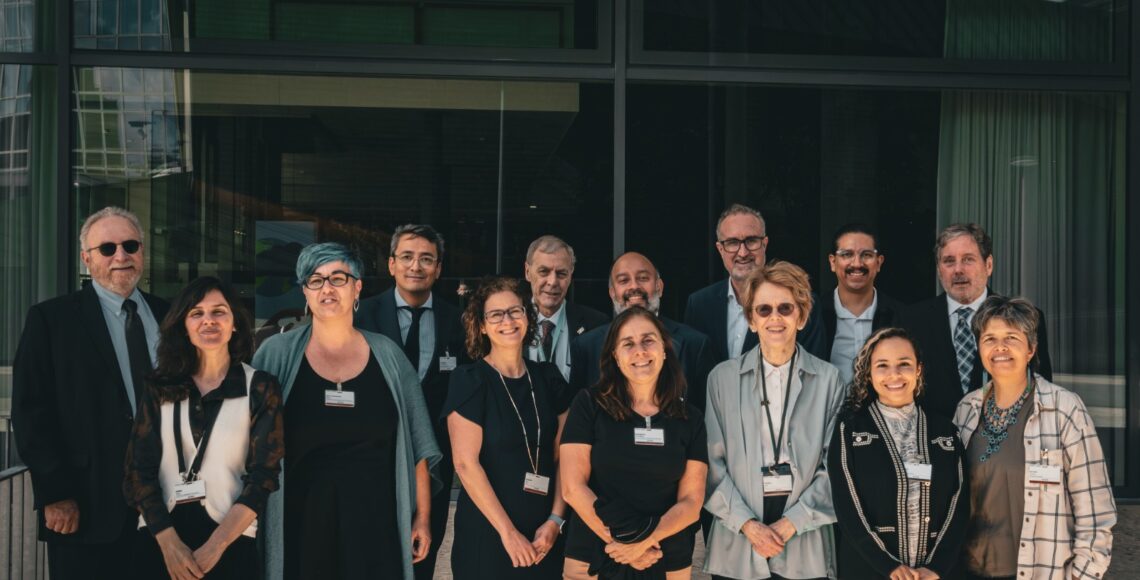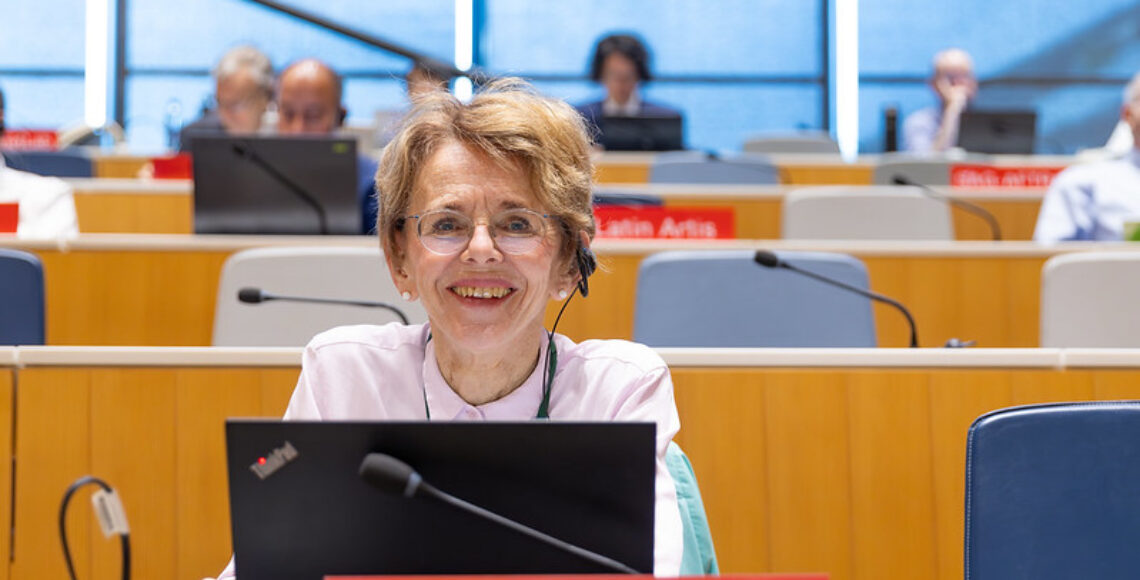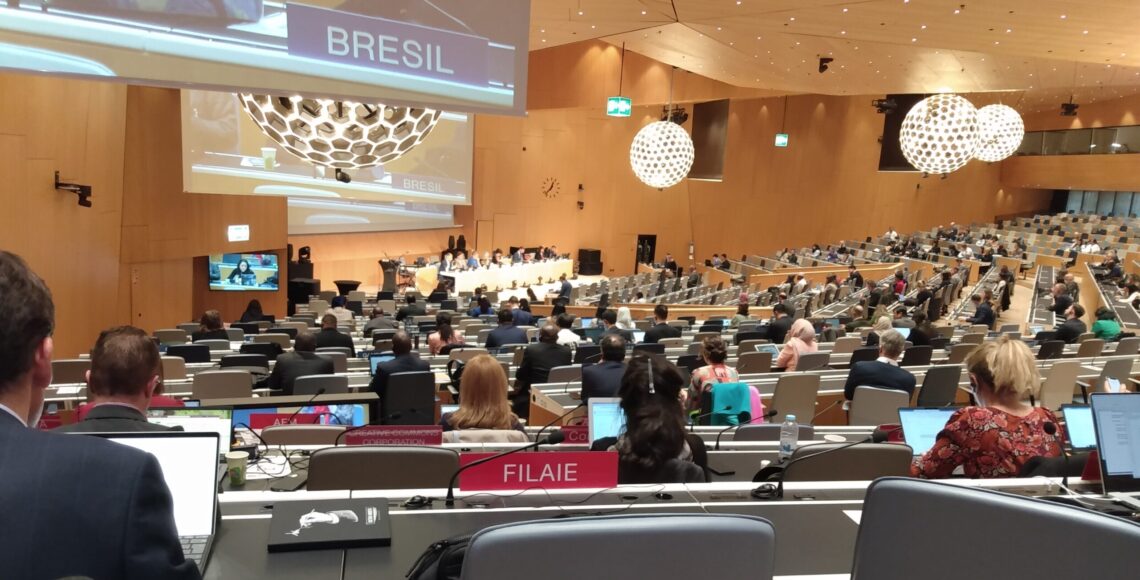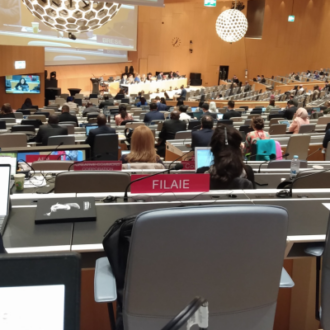It is a pleasure to report on the ICA’s copyright advocacy work at the World Intellectual Property Organization (WIPO). I represented the ICA at the 45th meeting of the Standing Committee on Copyright and Related Rights (SCCR45), which met in Geneva 15-19 April 2024.
The ICA has been represented at WIPO’s SCCR since 2010, working collaboratively with IFLA and ICOM. Our goal is a binding international treaty setting out basic copyright exceptions that would enable libraries, archives, and museums (LAMs) around the globe to fulfil their mission to preserve their holdings and make them available for use. A treaty would reduce the many inconsistencies between national copyright laws that inhibit cross-border flows of knowledge in a global digital environment. The discussion has gone through many stages, with Member States from Africa, Latin America, and Asia-Pacific in strong support of a binding international treaty. Developed nations (particularly the EU and the US) have consistently opposed a treaty, believing that an informal exchange of national practices is sufficient. While each nation is free to amend its copyright laws to include robust exceptions for LAMs, a binding international treaty would provide more impetus to do so.
The agenda for SCCR45 was very full. Of particular interest to the archival community are the following agenda items: a) Exceptions for Libraries, Archives, and Museums, and b) a Broadcast Treaty.
With regard to Exceptions for LAMs, copying to preserve cultural heritage has been identified as a topic on which there is general agreement. Discussion focused on implementation of a work plan for copyright exceptions accepted at SCCR43 (SCCR43/8), in which one of the three priorities is Preservation. Although a detailed implementation plan (SCCR/44/6) was introduced by the African Group at SCCR44, it was not adopted, and the Secretariat was directed to prepare an alternate implementation plan, which was presented at SCCR45 (SCCR/45/6). There was strong disagreement regarding which document to use as the base document to advance the limitations and exceptions’ agenda. After much discussion, an informal working document that combined elements of both versions was prepared (SCCR/45/10 PROV), and intersessional work will continue to develop an agreed upon draft implementation plan for discussion at SCCR46. From an archival perspective, this is a tolerable outcome, considering that the insubstantial Secretariat’s plan could have prevailed.
A Toolkit on Preservation was commissioned by the WIPO Secretariat in 2021. The Toolkit describes the need for copyright exceptions for preservation copying, and it identifies a range of factors which legislators, heritage professionals, rightsholders, and others should consider when drafting legislation. It offers options from which legislators can make choices suited to national and local circumstances. The Toolkit was warmly received at SCCR43, and the final version is now available online. Work has begun on a second toolkit covering access to and use of works in LAMs collections.
A treaty to protect the rights of broadcasting organizations has been on the SCCR agenda for 25 years. Since then, the initial problem (signal piracy) has been transformed by technological advances, and many jurisdictions have already addressed the issue using measures other than copyright. While there is common understanding within the SCCR that any treaty should be narrowly focused on signal piracy, should not extend to any post-fixation activities, and should provide member states with flexibility to implement obligations effective legal means other than copyright, points of disagreement remain. For LAMs (libraries, archives, and museums), the main issue has been finding the right balance regarding the approach to exceptions. At SCCR45, many wanted to send the draft treaty to a Diplomatic Conference, the final stage of negotiation before a treaty is concluded. However, it was clear from the discussion that many issues had yet to be resolved. Therefore, the Broadcast Treaty remains on the SCCR agenda, and a new draft will be discussed at the next SCCR. LAMs will have more time to advocate for more robust exceptions.
For further information, do not hesitate to contact Jean at Dryden.ica.wipo@gmail.com



